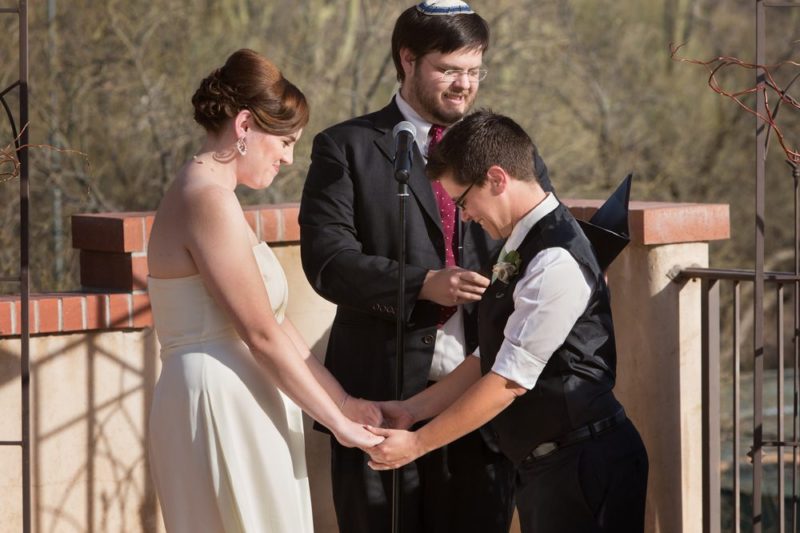Alabama House Committee Passes Bill Targeting Same-Sex Marriage
An Alabama house committee passed a bill Thursday that would prevent clergy and other religious officials from being required to officiate marriages they have religious objections to and protect them from being sued for refusing to officiate.

An Alabama house committee passed a bill Thursday that would prevent clergy and other religious officials from being required to officiate marriages they have religious objections to and protect them from being sued for refusing to officiate.
Opponents believe the bill is designed to discriminate against same-sex couples under the guise of religious freedom.
HB 56, sponsored by Rep. Jim Hill (R-Springville), would amend state law so that anyone qualified to perform marriages in the state is not “required to solemnize a marriage for any person or persons.”
The bill includes immunity from “any civil claim or cause of action, or any criminal prosecution, based on a refusal to solemnize or recognize any marriage,” and it states that no state or local government or agency “may base a decision to penalize, withhold benefits from, or refuse to contract” with an organization or person.
This comes just days after the Alabama Supreme Court ordered probate judges across the state to defy a federal court order and stop issuing marriage licenses to same-sex couples.
After a federal district court ruling that struck down the state’s ban on same-sex marriages, Alabama had become the 37th state to recognize marriage equality. Since the ruling, a constitutional crisis has enveloped the state, as opponents of same-sex marriage have attempted to circumvent the federal court’s ruling.
HB 56 is part of a growing trend of bills introduced in state legislatures to protect so-called religious liberty by allowing discrimination against marginalized populations. One such bill introduced in Michigan would grant a “license to discriminate” for religious people across the state, according to civil rights advocates.
HB 56 is reportedly a priority for the Alabama House Republican Caucus.
During a house judiciary committee hearing Wednesday on the “Freedom of Religion in Marriage Protection Act,” Hill said the legislation is meant to prevent clergy and probate judges from being coerced into conducting marriage ceremonies, according to reporting by the Montgomery Advertiser.
Rep. Juandalynn Givan (D-Birmingham) reportedly questioned the necessity of the legislation during the hearing, and asked Hill for specific instances of coercion. Hill responded by saying that he was not aware of any.
“I have received calls from probate judges and ministers who were concerned there would be an effort to do that,” Hill said, according to the Advertiser.
Opponents of the bill claim that the legislative language is too broad. They say the legislation could allow judges to refuse to marry couples if they object to the couple’s religious beliefs or allow religiously affiliated hospitals to refuse visitation rights to same-sex couples.
Susan Watson, executive director of the ACLU of Alabama, was among the four opponents of the bill who spoke during the committee hearing. Representatives from the Human Rights Campaign of Alabama and Equality Alabama also testified against the bill, according to reporting by AL.com.
Watson said the bill would “allow government officials to pick and choose who they serve,” reported the Advertiser.
“HB 56 does not represent Alabama values like fairness and loving your neighbor as yourself. The bill’s foundation is rooted in a motivation to discriminate,” Human Rights Campaign Alabama State Director R. Ashley Jackson said in a statement.
The bill was passed by committee members Thursday without discussion or debate. It now moves to a vote by the full house, where the GOP has a 72-33 advantage. Republicans hold 26 of the state senate’s 35 seats.
